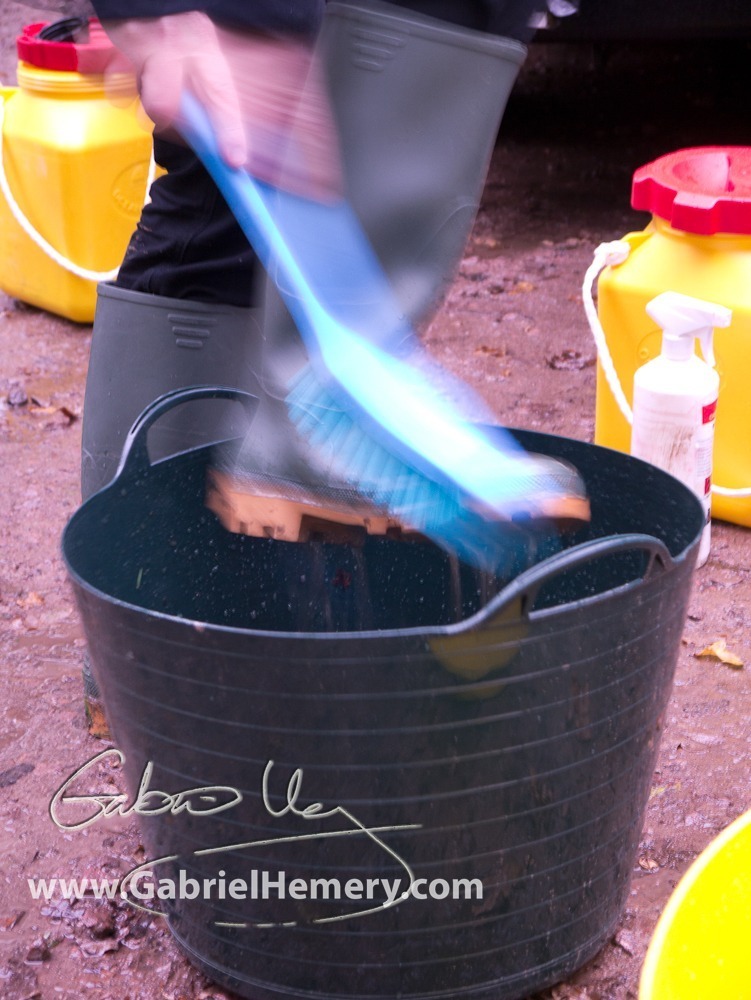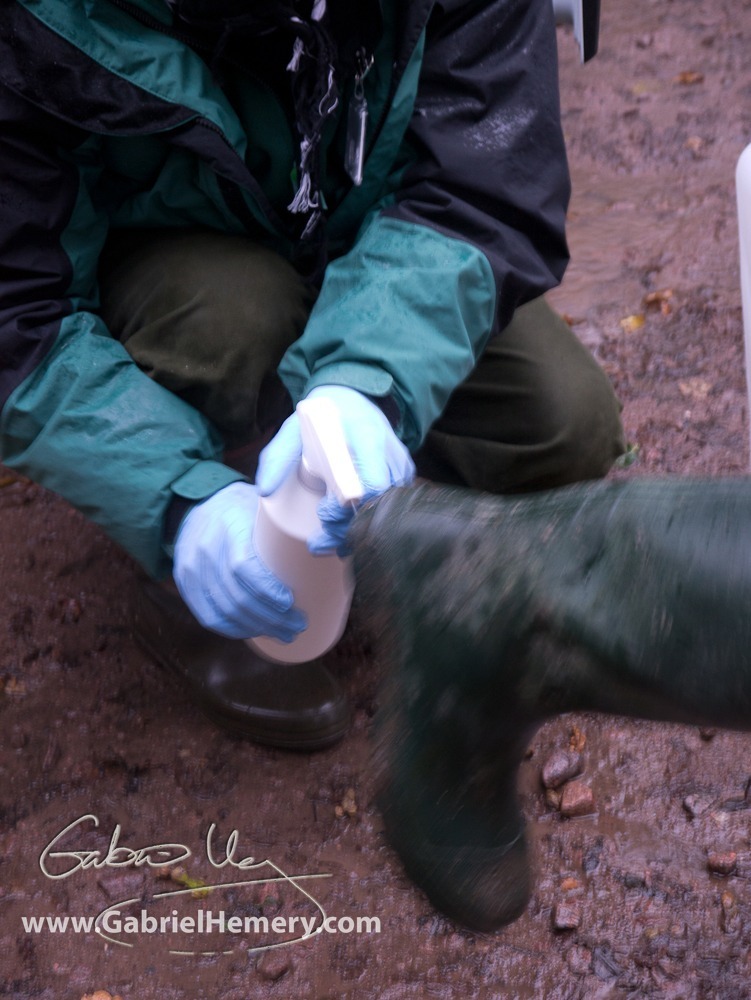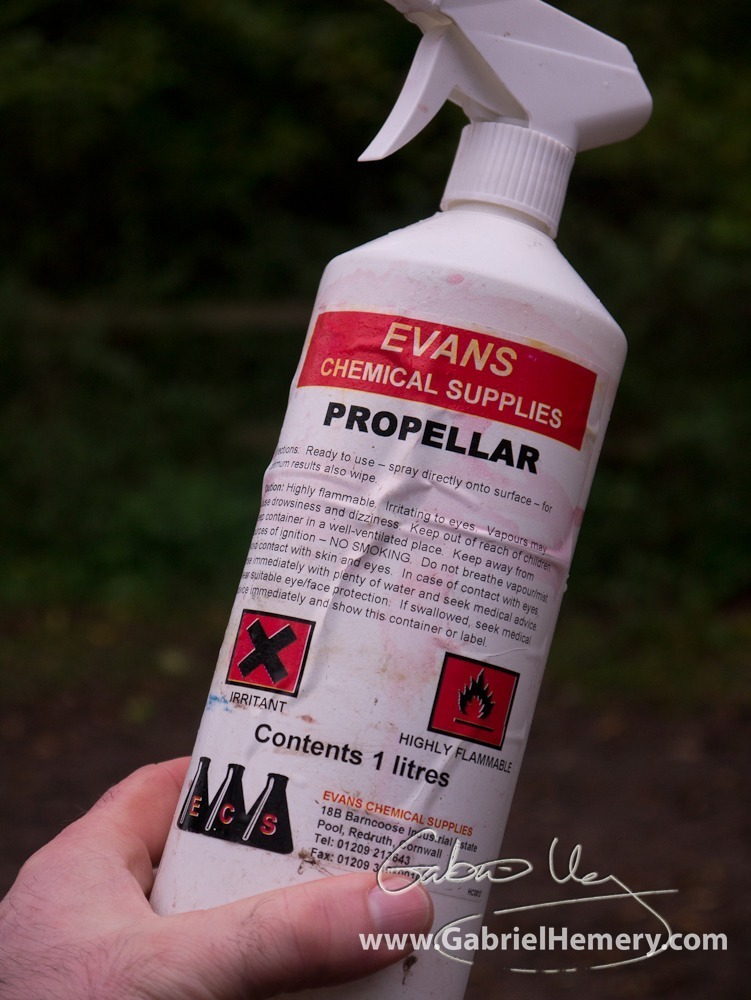Biosecurity – preventing the introduction and spread of harmful organisms – is big news at long last! The arrival of Chalara fraxinea in Britain has brought this important issue to the fore. However, I found it difficult to find simple guidance on the steps we should take when visiting or working in woodlands, or with individual trees in our trees and cities. Many of the record number of readers of this blog over the last week have found it after using searches such as:
“what should I do if I find Chalara fraxinea?”
or
“how do I clean my boots?”
While we wait for more detailed specific advice to come from scientists and Government officials in relation to Chalara fraxinea it would be prudent to follow the protocols developed to minimise the spread of another pathogen; Phytophthora. So my first recommendation is to visit the Forestry Commission’s webpage on Biosecurity Measures, which includes the advice currently given to all Forestry Commission staff for their routine visits to woodlands in a handy pdf guide.
I have put together the following simple guide on woodland biosecurity.
Biosecurity behaviour

- Clean your footwear after visiting a woodland. Wear Wellington boots, as these are easier to clean thoroughly. To do this effectively you must remove first all soil and leaf litter from your soles. You will need water and a stiff hand brush.
- If you have been to a high risk site apply a detergent to sterilise them, although it is good practice after all visits.
- Sterilise your tools. Be careful that the chemicals you use do not harm trees (or other wildlife). Read more about sterilising forestry and woodland tools.
- If you drive into a woodland, even on a road, wash your tyres to remove soil and leaf litter.
Biosecurity personal kit

The most common question I’m asked is what chemical should I use to sterilise or disinfect. The one recommended, or at least adopted, by the Forestry Commission currently is Propellar™. This is available only directly from one supplier (see below) and must be ordered wholesale in 12×1ltr containers as a minimum order. I was amazed when I searched the websites of two of the major forestry and arboricultural supply companies that neither had any disinfection chemicals listed. This is really shocking! Try it yourself. Go to Google.co.uk and enter a search string that allows you to search within a certain website (you will need to know the url of the forestry/arb supplier): try “site:sxxxxxxxx.co.uk disinfectant sterilise” [replace the url with the supplier’s]. I’d be happy to be proven wrong but I’ve not found one yet that came up with any goods.
-

Propellar spray to sterilise forestry equipment Propellar™ – chemical to sterilise footwear and equipment (always read the Health & Safety label). The supplier for the disinfectant Propellar™ is:
Evans Chemical Supplies,
18B Barncoose Industrial Estate
Redruth
Cornwall
TR15 3RX.
Tel. 01209 213643
Email: Evans Chemicals - handbrush – to remove soil from boots
- disposable gloves – protection from chemicals used
- safety goggles – protection from chemicals used
- water container (e.g. 5L for personal/15L for groups) – to carry water in vehicle for cleaning after visit
- airtight storage container – to hold brush and chemicals
- soap and towels – to wash hands
- bags – to dispose of material
- storage box – to hold all biosecurity items together
If you have advice born from experience or other comments then I would be pleased to hear from you. Use the Comment box then you can share your experiences with other readers.
Finally, this advice can be followed by woodland owners, arboriculturists, foresters and anyone who accesses woodland regularly. Whether it is practicable or feasible for the average member of the public to adopt these measures is doubtful. Nonetheless, we can lead by example and on high risk sites or those with special high value (e.g. ancient trees or important habitats) particularly, it may be possible to erect signage or equipment to encourage visitors to undertake simple biosecurity measures.
Gabriel Hemery
Further Information
- Forestry Commission’s Biosecurity Measures
- Forestry Commission advice on working with Phytophthora
- My top choices for pruning tools
- Information on sterilising pruning tools
- More Tree Health posts from Gabriel Hemery
 This work is licensed under a Creative Commons Attribution- NonCommercial- NoDerivs 3.0 United States License.
This work is licensed under a Creative Commons Attribution- NonCommercial- NoDerivs 3.0 United States License.

It seems from its MSDS that Propellar is nothing more than propan-2-ol or isopropyl alcohol at no higher than 70% solution in water to prevent it from evaporating too quickly. Rubbing alcohol in other words. And you can get that for a lot less online.
Hi Gabriel,
Green tech supply propellar in 5l cans and multiples thereof – Still comes from Evans though. I am buying in bulk and putting through a knapsack to disinfect my harvesting kit when moving sites.
I think this poster from the Forestry Commission and FERA provides clear advice to the public: http://www.forestry.gov.uk/pdf/Poster_countrysidebiosecurity2012.pdf/$FILE/Poster_countrysidebiosecurity2012.pdf
Thanks Imogen – I had not seen this. Very helpful indeed.
HI Gabriel,
Do you know whats actually in Propellar ? I’ve been using meths as a lot of these disinfectants seem to be alchohol based.
If things get much worse I may be force to start drinking it as well !